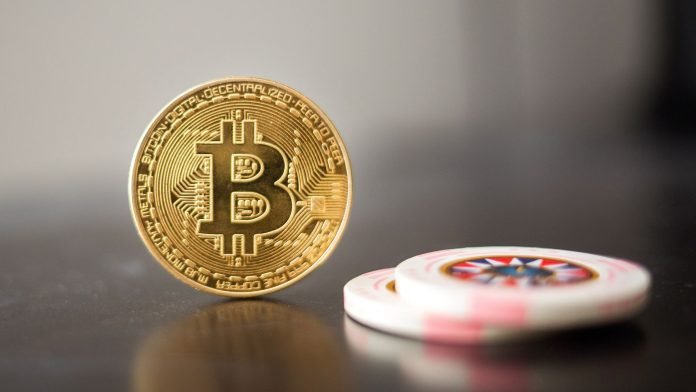
Online poker has come a long way since the early days of the internet. What started as a niche hobby on a few basic sites has evolved into a multi-billion dollar global industry with tens of millions of players. And in recent years, one innovation has been having an especially profound impact on the world of online poker: cryptocurrency.
Cryptocurrencies like Bitcoin, Ethereum and even meme coins like Dogecoin have found a perfect use case with internet poker in numerous gambling venues like Casino Wunderino. Their pseudonymous, decentralized and transparent nature maps onto the needs of players and sites alike. Adoption of crypto in online poker has skyrocketed as a result. Understanding the role of cryptocurrency is now essential for any player interested in making the most of modern online poker sites.
Faster, Cheaper Deposits and Cashouts
One of the most immediate benefits is faster and less expensive deposits and cashouts. Where credit cards and e-wallets can come saddled with long processing times, delays and fees, cryptocurrency transactions are typically confirmed within minutes. And the network fees pale in comparison to traditional payment providers. This means less time waiting around for funds and more time at the felt.
Poker sites have wasted no time in rolling out cryptocurrency payment options to capitalize on these advantages. Of the major US-facing sites, Americas Cardroom began accepting 60+ different cryptocurrencies in 2016 while Ignition added Bitcoin cashouts in 2017. And as crypto continues its march into the mainstream, its presence across sites new and old will only grow.
Increased Anonymity for Player Privacy
Many poker pros and amateurs alike value their privacy at the tables. But standard deposit methods like bank accounts and credit cards connect player identities to financial information as a matter of course. Cryptocurrency breaks this linkage, allowing provably fair gambling with greatly enhanced anonymity.
Most cryptocurrencies are pseudonymous by nature, only associating transactions with blockchain addresses rather than real-world IDs or account numbers. Determined parties can still sometimes “de-anonymize” users through chain analysis of transaction histories. But by taking proper precautions – like using fresh addresses and mixing services – players can fund their accounts without leaving personally identifiable traces.
Bitcoin paved the way for privacy-focused cryptocurrency poker deposits in 2011 alongside niche sites like SealsWithClubs. This torch has since been carried by coins like Monero and Zcash that use advanced cryptography to offer true transaction anonymity. As regulators clamp down, anonymity features will likely become even more sought after among poker players going forward.
Increased Transparency Around Site Integrity
The other side of cryptocurrency’s transparency is the way it helps keep poker sites themselves honest. This is accomplished through provably fair gambling – the ability for players themselves to verify the integrity of dealing algorithms on bitcoin-based sites.
Instead of blindly trusting that card sequences are truly random as with normal online poker, sites like CoinPoker provide a “Proof of Fairness” tool. This allows players to input the same seed values used by the site to generate their own card sequence for comparison, mathematically guaranteeing fairness to all parties.
As blockchain technology itself provides the transparent and verifiable backbone for cryptocurrencies, its integration into poker is a natural fit. Expanding adoption should lead to continued innovation around provable fairness to offer unprecedented site transparency.
The Future of Crypto and Online Poker
While cryptocurrency already plays a major role across online suomi kasinot, there is much room for growth still on tap. Just 8% of current players use crypto, indicating huge upside potential as adoption continues rising globally.
Some analysts expect crypto’s anonymity and fast cashout features to be especially coveted in developing poker markets like Latin America and India as they mature. And new technical improvements like decentralized accountless gambling would resolve lingering issues around slow fiat withdrawals.
Other more speculative possibilities lie with full-fledged poker applications being developed on so-called “Web 3” blockchains themselves. Decentralized networks like Ethereum and Cardano aim to support entire casinos directly in their code, offering built-in functionalities like tamper-proof randomness and smart contract enforcement of bets.
Existing sites are unlikely to be made obsolete given their massive player pools and liquidity any time soon. But crypto-native poker allowing provably fair and prompt payouts with less counterparty risk could likely start making significant inroads over the coming decade.
In Summary
Cryptocurrencies like Bitcoin have already made online poker far more attractive by resolving issues around privacy, speed and transparency for players. But this is likely only the beginning of crypto’s expanding role at the virtual tables. Continued adoption and innovation around blockchains and digital assets should shape the future poker landscape for years to come by resolving lingering friction points.
While risks undoubtedly exist around security and price volatility, the fundamental case for integrating cryptocurrency across internet poker sites and applications appears strong. As the underlying technology matures and sees increasing mainstream comfort and understanding, players and operators alike stand to benefit in ways we likely cannot yet fully envision. Fasten your seatbelts – crypto and online poker are on one heck of a ride together into the digital future.




